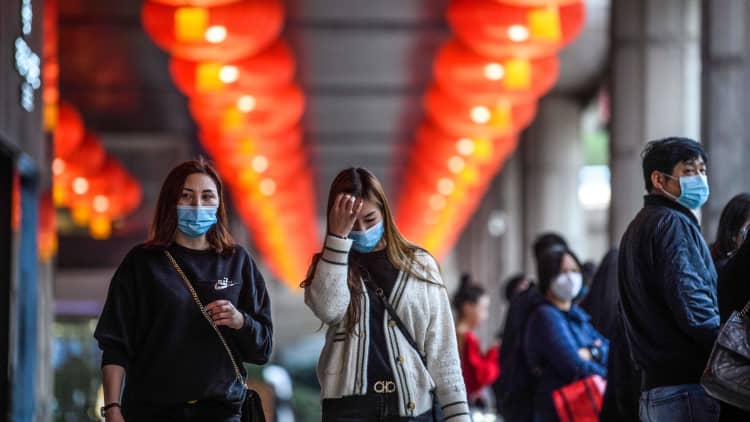Facebook is launching new tools that use anonymized location data collected from users to show whether people are adhering to social distancing measures designed to stop the spread of the COVID-19 coronavirus.
The company said on Monday that its Data for Good program is developing Disease Prevention Maps, which show how people are moving around regions. Facebook hopes this data can be used alongside other information that public health officials collect to help determine areas where COVID-19 outbreaks are likely to occur.
According to Facebook, the maps include:
- Co-location data: The probability that people in one area will come into contact with each other.
- Movement range trends: This data shows at a regional level whether people are staying home. In the San Francisco Bay Area, for instance, a higher proportion population is sheltering in place in part because tech jobs allow for remote work.
- A social connectedness index: This data reveals friendships across states to show the areas where people might need more support.
Facebook says it won't show patterns around the movements of any specific individuals, and won't be used to identify individuals who aren't adhering to the social distancing or shelter-in-place guidelines.
"We think that Facebook and the wider tech industry can continue to find innovative ways to help respond to that crisis," said a company spokesperson. "But we don't think the help entails compromising privacy."
The collection of location data is opt-in, meaning Facebook users will have to choose to share it, although the company has previously warned that it can pick up information about users' movements through other features, like check-ins.
On his personal Facebook page, Mark Zuckerberg, said the project could be expanded if it goes well. "We're starting to roll this out in the US this week, and if the results are promising then we will quickly expand this globally in the days ahead."
Facebook also said that it won't be looking into why people in particular areas are or are not following the guidelines. A spokesperson noted that instead, the company will explore trends across populations. For instance, some states have a larger population of people who have transient jobs, or would struggle to work from home.
Some users might also see a mention at the top of their news feed about a survey, which asks for information about how they're feeling. That survey tool was developed by researchers at the Carnegie Mellon University Delphi Research Center, and is designed to be used by health officials figure out where and when to relax shelter-in-place guidelines when there are still gaps in COVID-19 testing. Carnegie Mellon has said that it won't share the survey responses with Facebook.
Zuckerberg noted, on his Facebook post, that experiencing symptoms is often a precursor to going to the hospital.
"If this works, it can produce a weekly map that may help more accurately forecast how many cases hospitals will see in the days ahead, as well as an early indicator of where the outbreak is growing and where the curve is being successfully flattened," he wrote.
Public health experts say these tools from Silicon Valley's tech companies can be useful, in large part because of their reach.
"These companies already have access to the most detailed information about the population so clearly can yield the most data about social connectivity and potential risks among networks," said John Brownstein, an epidemiologist and a chief innovation officer at Boston children's Hospital. "They also represent the largest public health communication channel we have. The hope is this data is shared broadly with public health decision makers so it can also be acted upon."
Facebook isn't the only tech company pitching in to the COVID-19 effort. Google is working on similar efforts to map out how people are working and whether they are adhering to social distancing guidelines, and Microsoft is designing chatbots and other tools for public health, including the Centers for Disease Control and Prevention, to keep people out of emergency rooms who don't need to be there.



